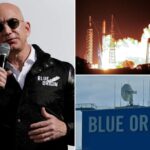US President Donald Trump recently made headlines by freezing all aid to South Africa, citing reasons related to terrorism and race-based violence. The White House released a fact sheet claiming that South Africa supports terrorism abroad and discriminates against ethnic minority groups at home.
The document, dated February 7th, was disseminated by the US embassy in Pretoria, emphasizing Trump’s commitment to human rights. It specifically mentioned the Expropriation Act, which allows the South African government to seize agricultural property from minority groups without compensation. However, critics argue that the law is meant for public interest purposes and does not target specific ethnic groups.
The dispute over the Expropriation Act revolves around the provision for zero compensation in certain cases, such as when the land is abandoned or not being used for income generation. Despite race not being a factor in these cases, Trump’s office has framed it as a discriminatory policy against minority groups.
Furthermore, Trump offered refuge to Afrikaners in the US, claiming they are discriminated against in South Africa. This move was met with mixed reactions from South African politicians, with some acknowledging the challenges faced by farmers of all races due to the lack of rural safety units.
Opposition parties raised concerns about land reform and illegal land occupation, with some thanking Trump for highlighting the plight of Afrikaners but expressing their commitment to staying in South Africa. Meanwhile, EFF leader Julius Malema accused Trump of targeting South Africa due to its stance on Israel, rather than genuine concerns about human rights violations.
The decision to freeze aid to South Africa has sparked a debate in the country, with politicians and citizens expressing a range of opinions on the matter. Despite the controversy, the South African government maintains that Trump’s decision was based on misinformation and political motives. The recent tensions between South Africa and the United States have escalated following President Trump’s decree linking the South African government’s actions to the International Court of Justice (ICJ). The White House communication explicitly stated that South Africa’s stance on the conflict in Gaza and its approach to the tribunal in The Hague were the reasons behind the attack.
The decree accused South Africa of reinvigorating relations with Iran to develop military and nuclear arrangements, a claim that was vehemently denied by South African international relations spokesperson Chrispin Phiri. Phiri emphasized that South Africa is committed to preventing the proliferation of weapons of mass destruction and adheres to UN Security Council sanctions.
Despite the falsehoods in the White House communique, Rise Mzansi leader Songezo Zibi highlighted the serious implications of the Trump administration’s actions. Zibi pointed out that the administration’s bullying tactics, such as tariffs and punishments imposed on international partners like Canada, Mexico, and China, have far-reaching consequences for countries like South Africa.
The South African government, led by President Cyril Ramaphosa, has reiterated its commitment to international cooperation and peace efforts. The accusations made by the Trump administration are seen as attempts to undermine South Africa’s diplomatic efforts and partnerships. The government remains steadfast in its pursuit of justice and equality on the global stage.
In conclusion, the ongoing tensions between South Africa and the United States underscore the complexities of international relations and the importance of dialogue and diplomacy in resolving conflicts. The South African government remains resolute in its stance against injustice and will continue to uphold its principles in the face of external pressures.








